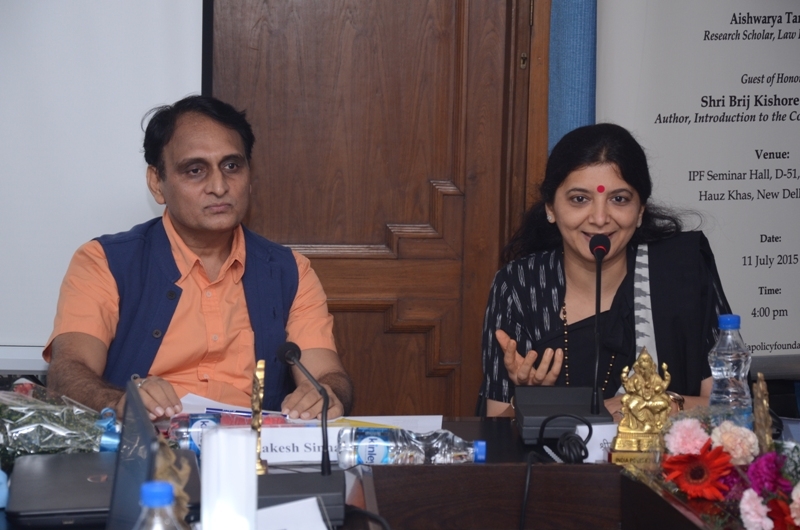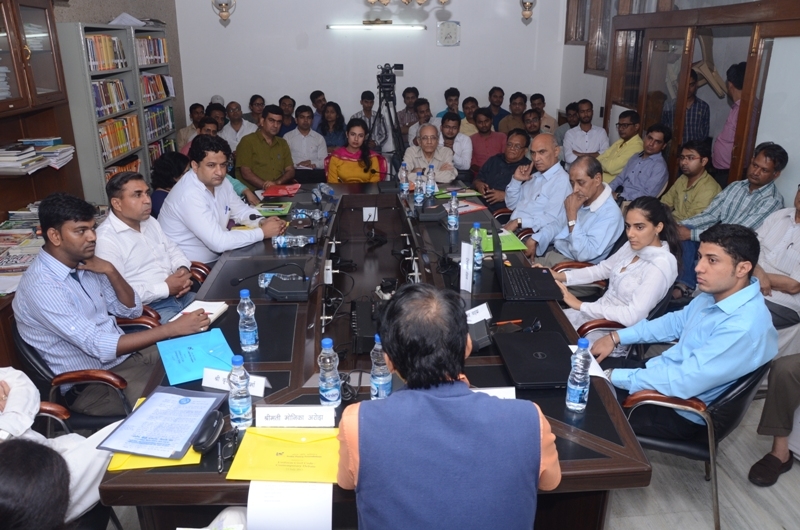Uniform Civil Code-Contemporary Debate
Total Views |

July 11, 2015, IPF Seminar Hall, New Delhi
Chair: Shri Mr.Brij Kishore Sharma, Author (Introduction to the Constitution of India); Director, Raja Ram Mohan Roy Library, Calcutta
Keynote Address: Monica Arora, Eminent Lawyer
Presented by : Vaibhav Chadha, Student, Faculty of Law, University of Delhi
Aishwarya Tandon, Student, Faculty of law, University of Delhi
He mentioned that this discourse of whether a civil code should override all personal laws in the country should be given importance, as it is the need of the hour. He stated, “the society that doesn’t progress with modernity, and the society that is uncritical about it customs, that society cannot progress and is regressive.”
Key note speaker and eminent lawyer Mrs. Monica Arora started with the Shah Bano Case verdict and discussed how it had taken the country by storm when the Supreme Court held that a Muslim man is also liable to pay maintenance to his wife under Art 125 CrPC, and spoke in favor of implementing a Uniform Civil Code in India. She mentioned the lack of political will during the time of Rajiv Gandhi who initially supported a uniform code but however in the need to keep his vote bank intact took a U-turn and reversed the order of the Supreme Court. She also spoke about the aggression amongst the Hindu community when the Hindu Code Bill was enacted, but the constitution framers helped the critics understand the need for the code, however the same could not be done with the Muslims as they have always mistook the code as an attack on their religion and their personal law. She concluded by saying, “there is a lack of both political as well as legal will.”
Vaibhav Chadha and Aishwarya Tandon, students of Faculty of law, University of Delhi, presented the paper on Uniform Civil Code and mentioned that there is a need for the Uniform Civil Code in order to maintain national integrity, promote gender equality, reduce appeasement politics and encourage secularism in its true sense. They also discussed how Article 44 of the Constitution does not stand in conflict with Article 25 and 26 which speak about religious freedom. Further, they also discussed the discrepancies that are still prevalent amongst personal laws which need to be reformed to ensure uniformity of laws for all citizens.

The Guest of Honour, Mr. Brij Kishore Sharma, author, Introduction to the Constitution of India and Director of Raja Ram Mohan Roy Library, Calcutta, threw light on this issue and doubted whether secularism actually exists in the country as there are provisions in the personal laws which discriminate against women. He said, “Women are more equal than men as there are provisions in our Constitution which give more rights to women than to men.”
Prof. Rakesh Sinha further added that the contention saying implementation of a civil code would mean Hinduization of civil law is incorrect, and that it must not be confused with saffronization, as it only means eradication of gender inequality and promoting women empowerment. He concluded, “We don’t have problem with any law until it doesn’t contradict with the Constitution, once it does, it is our duty to support the Constitution.”